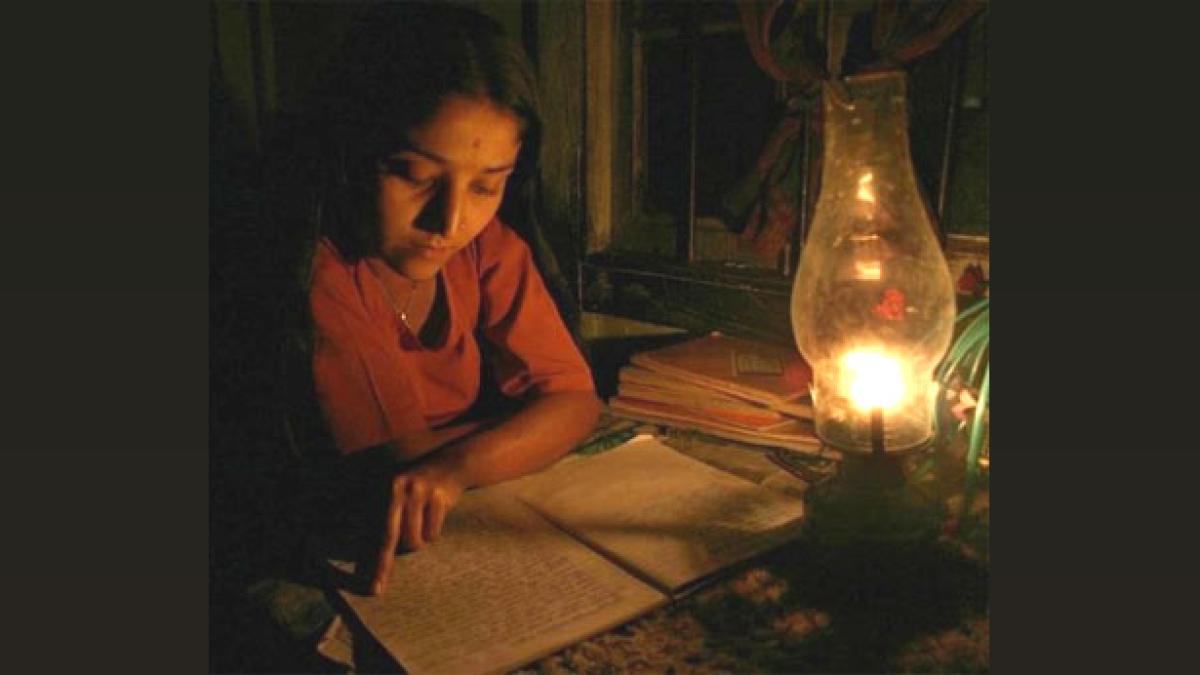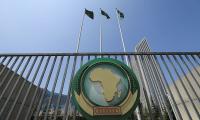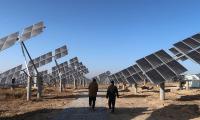South Africa to Learn from India's Rural Electrification Success
South Africa's Deputy President highlights India's success in rural electrification and renewable energy integration. Learn about the NDB's support for South Africa's infrastructure development.

Johannesburg, Sep 1 (PTI) South Africa is eager to learn from India's successes in promoting rural electrification and integrating large-scale renewable energy projects, the country's Deputy President Paul Mashatile has said.
The 62-year-old African National Congress leader was speaking at the opening of the New Development Bank's ninth annual meeting of the board of governors under the theme Investing in a Sustainable Future'.
The meeting that brought together the partners in the BRICS grouping (Brazil, Russia, India and China) concluded in Cape Town at the end of last week.
Mashatile said South Africa was especially eager to learn from India's successes in promoting rural electrification and integrating large-scale renewable energy projects; China's experience in rapidly scaling up renewable energy capacity and modernising its grid infrastructure; Brazil's expertise in hydroelectric power and bioenergy and Russia's strategies for managing a vast transmission network and its progress in nuclear energy.
We hope to gain insights into effective models for private sector participation in transmission infrastructure development; strategies for balancing grid stability with the integration of variable renewable energy sources; innovative financing mechanisms for large-scale energy projects and best practices in managing the socio-economic aspects of energy transitions, the deputy president said.
He said one of the lessons South Africa was taking from its BRICS partners is that they have invested in the creation of new cities as a method to eradicate poverty.
We are of the same opinion that it is imperative to allocate resources towards the construction of new cities in Africa in order to alter the spatial perspective of our cities, he said, pledging that through a collaboration with the New Development Bank (NDB), South Africa will invest in new cities in response to today's realities of growing urbanisation, migration, climate change, poverty, unemployment, and pandemic
Mashatile said that the future lies in accelerating the construction of these cities to address the large influx of people from rural areas moving to urban areas, which has put tremendous strain on cities throughout South Africa, causing traffic congestion, housing infrastructure backlogs and to some extent an increase in crime rates.
He cautioned though that it should be remembered that sustainable cities require dependable, inexpensive, and renewable energy to operate, as high-energy consumption patterns, rising energy costs and environmental deterioration caused by the use of fossil fuels render cities vulnerable and inefficient.
Mashatile thanked the NDB for the USD 5.6 billion in loans extended to his country over the last eight years.
It is commendable that the NDB has approved USD 2.3 billion for 10 renewable energy projects, including solar PV, wind, hydropower, biomass and hybrid systems with storage. These projects aim to install a 2.8 GW generation capacity, reducing over 4 million tonnes of CO2 emissions annually, Mashatile said.
We also appreciate the bank's plans to assist (state-owned rail entity) Transnet in resolving the deficiencies in freight rail infrastructure. The Transnet project in particular is of utmost importance in guaranteeing a goods system that is internationally competitive, allowing for the continuous expansion and diversification of the country's economy, Mashatile said.
After the meeting, the NDB announced the approval of a loan of up to USD 1 billion to South Africa for financing water and sanitation infrastructure development.
The funds are to be used by the South African government's Municipal Infrastructure Grant (MIG), which is a conditional grant allocated to municipalities to reduce infrastructure backlogs and ensure the provision of basic services to poor households.
The loan will play a crucial role in addressing the pressing need for infrastructure improvements in the water and sanitation sector of South Africa, which has been under great pressure in recent years with failing unmaintained infrastructure that left areas in the country's economic hub province of Gauteng without running water for up to two weeks at a time.
The (loan) is aligned with the NDB's general strategy and the bank's key areas of operation, which include financing water and sanitation infrastructure that facilitates universal access to clean drinking water and adequate sanitation, promotes equitable and sustainable management of water resources, the NDB said in a statement.
The New Development Bank was created in 2015 by Brazil, Russia, India, China and South Africa to mobilise resources for infrastructure and sustainable development projects in the BRICS and other emerging market economies and developing countries.
In 2021, the NDB expanded its membership by admitting Bangladesh, Egypt, the United Arab Emirates and Uruguay as its new member countries.
The 62-year-old African National Congress leader was speaking at the opening of the New Development Bank's ninth annual meeting of the board of governors under the theme Investing in a Sustainable Future'.
The meeting that brought together the partners in the BRICS grouping (Brazil, Russia, India and China) concluded in Cape Town at the end of last week.
Mashatile said South Africa was especially eager to learn from India's successes in promoting rural electrification and integrating large-scale renewable energy projects; China's experience in rapidly scaling up renewable energy capacity and modernising its grid infrastructure; Brazil's expertise in hydroelectric power and bioenergy and Russia's strategies for managing a vast transmission network and its progress in nuclear energy.
We hope to gain insights into effective models for private sector participation in transmission infrastructure development; strategies for balancing grid stability with the integration of variable renewable energy sources; innovative financing mechanisms for large-scale energy projects and best practices in managing the socio-economic aspects of energy transitions, the deputy president said.
He said one of the lessons South Africa was taking from its BRICS partners is that they have invested in the creation of new cities as a method to eradicate poverty.
We are of the same opinion that it is imperative to allocate resources towards the construction of new cities in Africa in order to alter the spatial perspective of our cities, he said, pledging that through a collaboration with the New Development Bank (NDB), South Africa will invest in new cities in response to today's realities of growing urbanisation, migration, climate change, poverty, unemployment, and pandemic
Mashatile said that the future lies in accelerating the construction of these cities to address the large influx of people from rural areas moving to urban areas, which has put tremendous strain on cities throughout South Africa, causing traffic congestion, housing infrastructure backlogs and to some extent an increase in crime rates.
He cautioned though that it should be remembered that sustainable cities require dependable, inexpensive, and renewable energy to operate, as high-energy consumption patterns, rising energy costs and environmental deterioration caused by the use of fossil fuels render cities vulnerable and inefficient.
Mashatile thanked the NDB for the USD 5.6 billion in loans extended to his country over the last eight years.
It is commendable that the NDB has approved USD 2.3 billion for 10 renewable energy projects, including solar PV, wind, hydropower, biomass and hybrid systems with storage. These projects aim to install a 2.8 GW generation capacity, reducing over 4 million tonnes of CO2 emissions annually, Mashatile said.
We also appreciate the bank's plans to assist (state-owned rail entity) Transnet in resolving the deficiencies in freight rail infrastructure. The Transnet project in particular is of utmost importance in guaranteeing a goods system that is internationally competitive, allowing for the continuous expansion and diversification of the country's economy, Mashatile said.
After the meeting, the NDB announced the approval of a loan of up to USD 1 billion to South Africa for financing water and sanitation infrastructure development.
The funds are to be used by the South African government's Municipal Infrastructure Grant (MIG), which is a conditional grant allocated to municipalities to reduce infrastructure backlogs and ensure the provision of basic services to poor households.
The loan will play a crucial role in addressing the pressing need for infrastructure improvements in the water and sanitation sector of South Africa, which has been under great pressure in recent years with failing unmaintained infrastructure that left areas in the country's economic hub province of Gauteng without running water for up to two weeks at a time.
The (loan) is aligned with the NDB's general strategy and the bank's key areas of operation, which include financing water and sanitation infrastructure that facilitates universal access to clean drinking water and adequate sanitation, promotes equitable and sustainable management of water resources, the NDB said in a statement.
The New Development Bank was created in 2015 by Brazil, Russia, India, China and South Africa to mobilise resources for infrastructure and sustainable development projects in the BRICS and other emerging market economies and developing countries.
In 2021, the NDB expanded its membership by admitting Bangladesh, Egypt, the United Arab Emirates and Uruguay as its new member countries.
You May Like To Read
TODAY'S MOST TRADED COMPANIES
- Company Name
- Price
- Volume
- Vodafone-Idea
- 11.36 ( -2.49)
- 94664837
- AvanceTechnologies
- 1.16 (+ 4.50)
- 34522155
- Sunshine-Capital
- 0.26 ( -3.70)
- 29015901
- Alstone-Textiles
- 0.27 ( -3.57)
- 28695959
- Mehai-Technology
- 1.65 ( -4.62)
- 28262795





